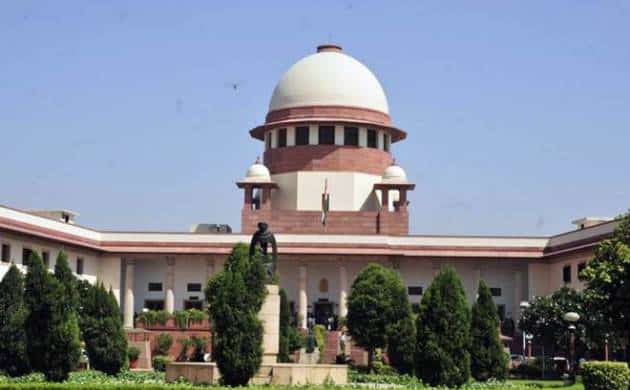New Delhi: The hearing in the infamous December 16 gangrape-cum-murder case in Supreme Court on Saturday saw a lawyer contending that the conviction of the accused was based on a wrong assumptions as the police had failed to show that there was a “conspiratorial relationship” among each one of them.
A three-judge bench headed by Justice Dipak Misra heard the matter on Saturday, even though it was a holiday, and recorded the submission of Amicus Curiae and senior advocate Sanjay Hegde, who was appointed to assist the apex court in the case. “Thus, what is to be considered in this case by this court is to ascertain the ‘foreseeability’ with regard to the offence of murder by all the accused in the course of their alleged plan of merry-making. “The prosecution story lacks in evidence to show that the petitioners/accused were in conspiratorial relationship with each member, which would have made them to reasonably foresee the plan of merry-making turning into an offense of murder,” Hegde submitted.
A 23-year-old paramedic, named by the media as Nirbhaya, was brutally assaulted and gangraped by six persons in a moving bus in South Delhi and thrown out of the vehicle with her male friend on the night of December 16, 2012. She had died in a Singapore hospital on December 29. Hegde said there must be a meeting of minds resulting in the ultimate decision taken by conspirators regarding the commission of offence and the prosecution has to show that the circumstances give rise to a conclusive or irresistible inference of an agreement between two or more persons.
“A few bits here and a few bits there on which the prosecution relies, cannot be held to be adequate for connecting the accused with the commission of the crime of criminal conspiracy,” he argued.
The senior lawyer further said the Delhi High Court did not go into the question of whether the prosecution has discharged its burden to prove the existence of a criminal conspiracy at all. The apex court had appointed senior advocates Hegde and Raju Ramachandran as amicus curiae to assist the court in the matter.
While Ramachandran would assist the court in the appeals of convicts Mukesh and Pawan, Hegde would assist in appeals of other two convicts, Vinay Sharma and Akshay Kumar Singh. Hegde said the trial court was correct in holding that the accused had a common object of “merry making” which in the course led to the rape of the girl but no evidence suggested that there was a common object to murder the victims.
The senior advocate said the only evidence with regard to murder is that the victim’s friend had stated in his testimony that he had heard one of the accused saying “mar gayee, mar gayee (she is dead, she is dead)”. “This can be read only as an ex-facto statement of fact that the girl has died. It cannot be read as exhortation to kill the girl,” he said, adding that another evidence was that the accused tried to crush the victim and her friend under the wheels of bus.
“It is the prosecution’s own case that the accused had first taken the victims to the back door of the bus. It was only when they were unable to open the backdoor that they threw the victims out of the front door. “The same establishes the absence of a conspiracy to murder the victims by crushing them under the bus. If the same were the case, the victims would have been taken to the front gate in the first instant,” Hegde said.
The senior advocate said the death of the victim has been attributed to internal injuries caused due to the insertion of the rod and the lack of evidence with respect to the common object to cause death of any of the victims or the prosecutrix, weakens the prosecution’s case on conspiracy. He said the ability of the police to arrest accused Vinay and Pawan, two days after the incident after being “mere pointed out” by another accused Ram Singh, arrested a day before, “does not inspire confidence”.
The hearing remained inconclusive and the bench posted the matter for December 5. On April 4, the court had commenced final arguments on the plea of Mukesh and Pawan. The four convicts in the case had approached the apex court against Delhi High Court’s March 13, 2014 verdict which had observed that their offence fell in the rarest of rare category and upheld the death sentence awarded to them by the trial court.
The prime accused, Ram Singh, was found dead in a cell in Tihar Jail in March 2013 and proceedings against him were abated. On August 31, 2013, another accused, a juvenile at the time of the crime, was convicted and sentenced to three years in a reformation home. He was released from observation home in December last year.

